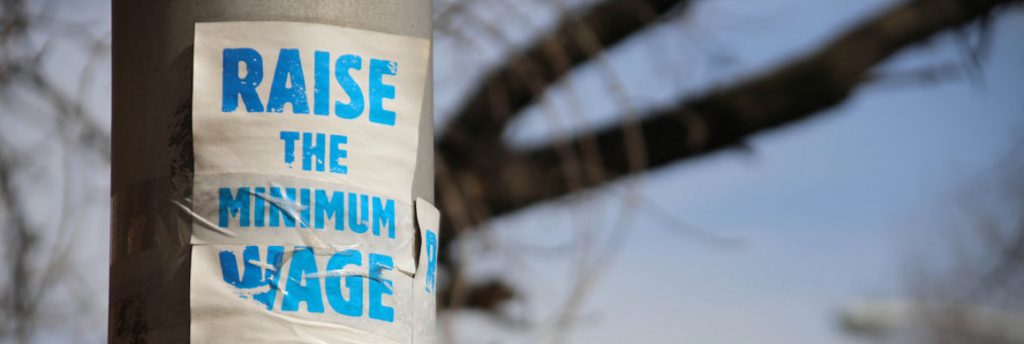MIT Sloan Surveys Long-Term Implications of Raising the Minimum Wage

MIT Sloan published an article by Kara Baskin on its blog this week that surveyed three prominent Sloan faculty experts on whether the hourly minimum wage should be raised from $7.25 to $15/hour and its long-term implications.
Information Technology professor and director of the MIT Initiative on the Digital Economy, Erik Brynjolfsson, suggests three potential solutions to increasing median wages and boosting jobs:
- Expand the Earned Income Tax Credit (EITC). Brynjolfsson says that with an EITC, income and/or emissions taxes would generate enough money to pay minimum wage workers an additional $3 per hour and encourage “employers to hire more workers.”
- Reinvent education. Brynjolfsson believes there should be a “greater emphasis on skills like teamwork, project management, persuasion, leadership, coaching, and creativity.” He adds, “We need to reinvent education for an age where machines are increasingly doing cognitive tasks—the second machine age.”
- Reduce occupational licensing. Brynjolfsson argues that “excessive licensing requirements reduce employment and mobility.”
Professor of Global Economics and Management Simon Johnson believes it’s “not difficult to support an increase to $12 per hour on the basis of the available evidence,” particularly “in areas with higher living costs.” That said, Johnson thinks the issue isn’t so cut and dry. In poorer, more rural areas, Johnson believes $15 per hour could reduce hiring and increase unemployment.
Co-Director and Professor of MIT Sloan’s Institute for Work and Employment Research, Thomas Kochan, believes the real issue has to do with politics rather than cold hard numbers.
“[Congress] blocks essentially all changes in labor policy, whether it’s increases in wages, updating hourly wage legislation, or in other areas of labor relations law, all of which badly need to be updated.” Kochan believes the minimum wage should be raised “in steps at the federal level,” suggesting that legislators “start at $10, then go up to $15 over four years.”
